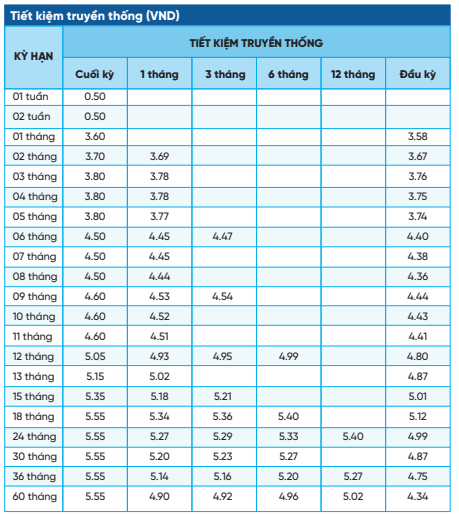Household businesses have long been a vital force in Vietnam’s economy, significantly contributing to GDP growth and employment. However, their development journey is fraught with challenges, including manual management, financial opacity, and the pressure to professionalize in the digital economy.
By 2025, with support from government policies and financial institutions, household businesses are poised to overcome bottlenecks, enhance competitiveness, and expand their reach in the global supply chain.
At the talk show “Unblocking Bottlenecks, Seizing Opportunities with Household Businesses,” organized by CafeF in collaboration with BVBank, Mrs. Nguyen Thi Cuc, Chairwoman of the Vietnam Tax Consultants Association, and leaders from Ban Viet Commercial Joint Stock Bank (BVBank), highlighted the challenges faced by household businesses. They also outlined practical solutions being implemented by the government and BVBank to support sustainable transformation and development.

Bottlenecks of Household Businesses: Manual Management, Financial Opacity, and Technological Challenges
Household businesses play an indispensable role in Vietnam’s economy. According to Mrs. Nguyen Thi Cuc, “There are approximately 5 million household businesses nationwide, with 3.6 million registered and tax-paying. Alongside private enterprises, they contribute about 30% to the state budget, account for 82% of total employment, and approximately 50% of the country’s GDP.” However, their small scale and spontaneity often hinder competition and expansion.
Mrs. Cuc further explained, “Household businesses often start as a means of livelihood, such as opening coffee shops, pho stalls, or selling herbal drinks. Some grow into larger operations, like sugar production or ceramics. However, their spontaneity lacks clear strategies, such as revenue targets, product diversification, or market demand alignment. This limits financial management and compliance with modern market professionalization requirements.

Mrs. Nguyen Thi Cuc, Chairwoman of the Vietnam Tax Consultants Association
Through practical engagement, Mr. Dau Quang The, Director of the Individual Customer Division at BVBank, identified three typical household business groups: traditional (market stalls, eateries, grocery stores), large-scale (manufacturing, trade, transportation), and e-commerce platform businesses.
Each group has unique needs, but all face three common challenges: “First, manual record-keeping of invoices, receipts, inventory, and transactions hinders management and growth. Second, compliance with legal requirements, such as tax declarations and quality standards, is difficult. Third, financial management lacks transparency due to blurred lines between business and personal finances,” Mr. The emphasized.

Mr. Dau Quang The, Director of the Individual Customer Division at BVBank
According to Mrs. Cuc, the biggest bottleneck for household businesses is the lack of a comprehensive invoicing system. “Small-scale household businesses often lack a full invoicing system. Unlike enterprises, which provide VAT invoices for input goods, household businesses without invoices make it difficult for buyers to claim expenses. This limits purchasing power and participation in large supply chains or exports,” she analyzed.
Mr. Dau Quang The added that financial opacity not only affects purchasing power but also makes banks hesitant to provide capital. “Manual management and financial opacity are significant barriers to competitiveness and access to capital,” he noted.
Solutions from BVBank and the Government: Supporting Household Businesses in the Digital Age
To help household businesses overcome bottlenecks, BVBank has implemented tailored financial and digital transformation solutions. Mr. Nguyen Chanh Trung, Deputy Director of the Individual Customer Division at BVBank, stressed, “Household businesses need to shift their mindset, ensure financial transparency, and digitize to thrive in the new era.” BVBank offers three key solutions:
First, Quick Loans: BVBank provides collateral-free loans based on eTax data or cash flow, with same-day disbursement. This enables household businesses to invest in machinery, expand operations, or meet working capital needs.
Second, Digistore App: This integrated platform manages cash flow, sales, e-invoicing, and tax documentation. It simplifies operations, ensures compliance with e-invoicing regulations, reduces loss risks, and enhances transparency.
Third, Payment Gateway Integration: BVBank offers convenient payment solutions for domestic and international transactions, boosting credibility and competitiveness, especially for e-commerce businesses.
“We view household businesses as a key segment and have designed products for cash flow management, sales, and capital provision. We are committed to supporting their digital transformation, from small-scale operations to large enterprises,” a BVBank representative affirmed.

Mr. Nguyen Chanh Trung, Deputy Director of the Individual Customer Division at BVBank
Mrs. Nguyen Thi Cuc praised BVBank’s initiatives: “Using eTax data for quick loan approvals is a significant step, helping tax-compliant businesses access capital. Digistore not only supports digital banking but also tax documentation management, benefiting businesses, banks, and tax authorities.” She suggested banks connect data with tax authorities to simplify loan procedures, reduce fraud risks, and improve accounting and invoicing efficiency.
According to Mrs. Cuc and BVBank representatives, government policies like Resolutions 68, 198, and 139 are crucial in supporting household businesses. These aim to make the private sector a key economic driver, with a goal of transforming 1 million household businesses into enterprises by 2030.
“Becoming an enterprise enhances status, revenue, and domestic and international market connectivity,” Mrs. Cuc emphasized.
Vietnamese household businesses are at a critical juncture, needing to overcome bottlenecks for sustainable growth. With government support and BVBank’s financial and digital solutions, they have the opportunity to not only resolve challenges but also thrive in the global supply chain, contributing to a stronger private economy.
The talk show “Unblocking Bottlenecks – Seizing Opportunities with Household Businesses,” organized by CafeF in collaboration with Ban Viet Commercial Joint Stock Bank (BVBank), will be an open forum for experts and banks to discuss the current state, opportunities, and challenges of millions of household businesses in the new context. The program features leading tax experts and BVBank representatives.
Unlocking Growth for Vietnamese Household Businesses: Overcoming Challenges and Seizing Opportunities with BVBank
In the midst of a robust digital transformation, coupled with strong support from the government and financial institutions like BVBank, small businesses now have the opportunity to overcome traditional barriers, enhance their competitive capabilities, and expand their reach within the global supply chain.
Secretary-General Tô Lâm: Transforming Resolution Content into Daily Tasks and Concrete Actions
General Secretary Tô Lâm urges every agency, organization, and individual to transform the content of the Resolutions into daily tasks and concrete actions.
Deputy Prime Minister: Government Secures Funding for Universal Healthcare Exemption
On the morning of September 16th, during the National Conference on Implementing the Political Bureau’s Resolutions, Deputy Prime Minister Lê Thành Long presented Topic 2, focusing on the key and core contents of Resolution No. 72-NQ/TW dated September 9, 2025, issued by the Political Bureau. This resolution outlines breakthrough solutions to enhance the protection, care, and improvement of the people’s health, along with the Government’s Action Plan to implement it.










































